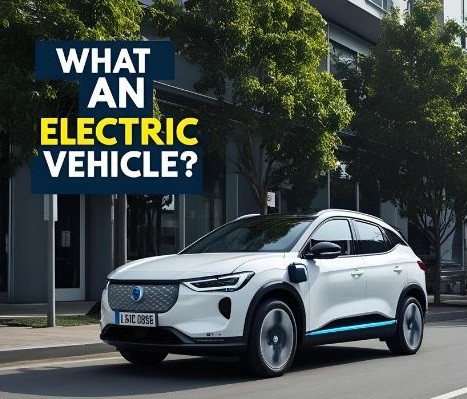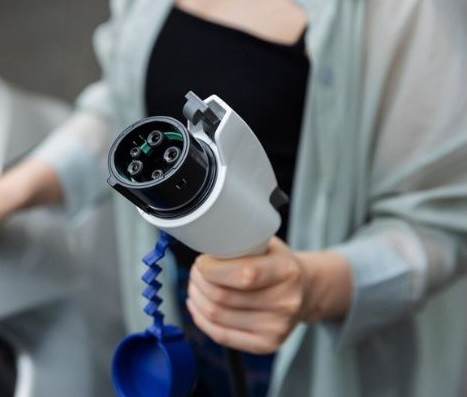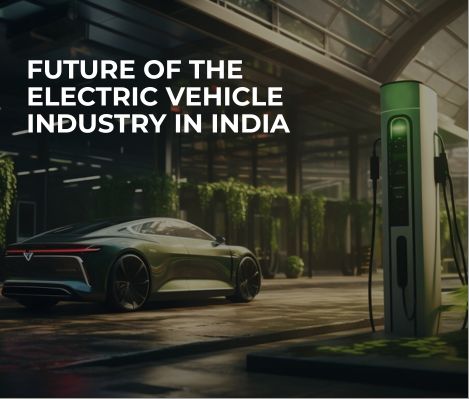An Overview of the Booming Electric Vehicle Industry in India
India’s automotive landscape is undergoing a dramatic transformation, driven by a powerful surge in the electric vehicle (EV) industry. From bustling city streets to remote rural roads, the shift towards sustainable mobility is becoming increasingly visible. This blog, “An Overview of the Electric Vehicle Industry in India,” delves deep into this dynamic sector, exploring its current state, key drivers, challenges, and future potential.
As concerns about air pollution and climate change intensify, the Indian government, along with private players, is aggressively promoting EV adoption. This comprehensive guide will illuminate the intricate web of policies, technological advancements, and market trends shaping India’s EV revolution. We’ll examine the growing ecosystem of EV manufacturers, ev charging infrastructure providers, and battery technology developers, while also addressing the crucial aspects of consumer adoption and affordability. Whether you’re an industry professional, an aspiring EV owner, or simply curious about the future of transportation in India, this overview provides valuable insights into the electrifying journey ahead. Join us as we navigate the exciting and rapidly evolving world of electric vehicles in India.
What is an Electric Vehicle?

An electric vehicle (EV) is a mode of transportation powered by electric energy instead of conventional fuels like petrol or diesel. Unlike internal combustion engine (ICE) vehicles, EVs utilize electric motors and rechargeable batteries, making them eco-friendly and cost-effective. EVs help reduce carbon emissions, lower fuel expenses, and contribute to energy efficiency.
Types of Electric Vehicles
Electric vehicles can be categorized based on their power sources and energy efficiency:
- Battery Electric Vehicles (BEVs): These are fully electric vehicles powered by batteries. They require external charging and produce zero emissions. Examples include the Tata Nexon EV and MG ZS EV.
- Plug-in Hybrid Electric Vehicles (PHEVs): These vehicles combine an internal combustion engine (ICE) with a rechargeable battery. They can run on both electricity and fuel, offering flexibility. Example: Toyota Prius Plug-in Hybrid.
- Hybrid Electric Vehicles (HEVs): Unlike PHEVs, HEVs charge their batteries through regenerative braking and the ICE. They cannot be externally charged. Example: Honda City Hybrid.
- Fuel Cell Electric Vehicles (FCEVs): These vehicles generate electricity through a chemical reaction between hydrogen and oxygen. Though not widely available in India, they hold promise for the future.
What is EV Charging & How Does it Work?

EV charging refers to the process of replenishing an electric vehicle’s battery using an external power source. EV Charging stations, also known as Electric Vehicle Supply Equipment (EVSE), provide different charging speeds based on power output:
- Level 1 Charging: Uses a standard household socket (120V) and takes the longest time.
- Level 2 Charging: Utilizes 240V outlets, commonly installed in homes, offices, and public places, reducing charging time significantly.
- DC Fast Charging: Provides rapid charging using direct current, enabling EVs to charge up to 80% within 30-60 minutes.
Current Scenario of the EV Industry in India
India’s EV sector is witnessing remarkable growth, with government policies like FAME-II (Faster Adoption and Manufacturing of Electric Vehicles) and state-level subsidies fueling adoption. Let’s explore the present landscape across different vehicle segments:
1. Passenger Cars
Electric passenger vehicles have seen a notable increase in adoption, with penetration rates projected to reach 4-6% by the end of the fiscal year 2025. Automakers are actively introducing new EV models to cater to diverse consumer preferences.
2. Two-Wheelers
The electric two-wheeler (e2W) segment has emerged as a frontrunner in India’s EV market, accounting for 85-90% of total EV sales in the fiscal year 2023. Penetration of e2Ws in overall two-wheeler sales increased nearly 5% during this period.
3. Three-Wheelers
Electric rickshaws (e-rickshaws) and electric three-wheelers are revolutionizing last-mile connectivity in India. Electric three-wheelers have gained traction, achieving a 7% penetration rate in fiscal year 2023 (excluding the e-rickshaw segment). This rate is expected to rise to 14-16% by fiscal year 2025.
4. Heavy-Duty Vehicles
Heavy-duty vehicles (HDVs) like Electric trucks, electric buses, and hydrogen-powered heavy vehicles are gaining traction, reducing carbon emissions and operating costs. The electric bus segment has seen significant growth, with over 1,800 units sold in fiscal year 2023. Penetration is predicted to rise to 11-13% by fiscal year 2025.
Key Players in the EV Industry
1. Electric Vehicle Manufacturers
ii) List of India’s Passenger electric vehicle manufacturers
- Tata Electric
- Mahindra Electric
- MG Motors
- Hyundai India
- BYD
ii) List of India’s Two-wheelers electric vehicle manufacturers
- Ola Electric
- Ather Energy
- Bajaj Auto
- TVS Motor Company
ii) List of India’s Three-wheelers Electric Vehicles manufacturers
- Mahindra Electric
- Piaggio Vehicles
- Atul Auto
- Omega Seiki Mobility (OSM)
ii) List of India’s Heavy-Duty Electric Vehicles manufacturers
- Tata Motors
- Ashok Leyland
- Eicher Motors (VE Commercial Vehicles)
- Mahindra Electric
- Olectra Greentech
- PMI Electro Mobility
- JBM
2. EV Charger Manufacturers
The demand for charging solutions is rising, leading to the emergence of major EV charger manufacturers, such as:
- Servotech Renewable Power System
- Delta Electronics
- ABB India
- Tata Power EV Charging Solutions
- Exicom Power Solutions
3. EV Charging Infrastructure Developers
To support EV growth, various companies are developing charging networks across India, including:
- Incharz
- Tata Power
- Statiq
- ChargeZone
- Magenta Power
- Fortum India
Future of the Electric Vehicle Industry in India

India’s EV industry is poised for rapid growth, driven by strong government policies, increasing consumer demand, and advancements in battery technology. India’s electric vehicle market is projected to grow at a CAGR of 28.52%, reaching US$ 18.319 billion by 2029, up from US$ 5.22 billion in 2024. According to Fortune Business Insights, the market is expected to expand significantly, increasing from US$ 3.21 billion in 2022 to US$ 113.99 billion by 2029, with a 66.52% CAGR. By 2030, India aims for EVs to comprise 30% of private cars, 70% of commercial vehicles, 40% of buses, and 80% of two- and three-wheelers.EV sales are projected to reach 15.3 million units, with two- and three-wheelers leading. However, charging infrastructure remains a challenge, requiring 5.6–5.8 million public units. Battery costs, limited range, and reliance on imports are hurdles, but advancements in local manufacturing and alternative battery technologies will boost growth. This rapid growth is fueled by government incentives, rising consumer demand, and advancements in EV technology and infrastructure Green hydrogen and biofuels may play a future role.
Conclusion
India’s electric vehicle industry is on a transformative journey, backed by supportive government policies, technological innovations, and increasing consumer demand. With a growing emphasis on sustainability and energy independence, EVs are set to become the preferred mode of transportation. As infrastructure and battery technology continue to evolve, the future of electric mobility in India looks bright, paving the way for a cleaner and greener tomorrow.


